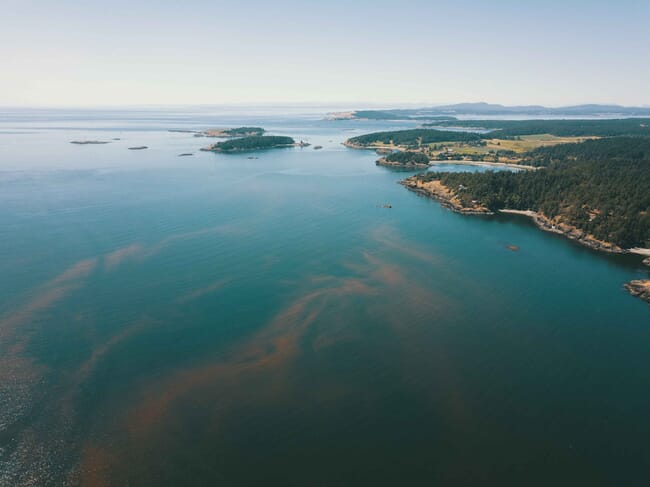
If such blooms contain harmful algae they can cause mass mortalities of farmed fish
The Sustainable Aquaculture Innovation Centre (SAIC) has been awarded £250,000 from the Department for Environment, Food & Rural Affairs’ (Defra) UK Seafood Fund: Skills and Training Scheme to create a new skills initiative which will be free-to-access for around 1,800 sector professionals and students.
Developed in collaboration with Lantra, the sector skills council for aquaculture, and the Scottish Association for Marine Sciences (SAMS), the programme will be boosted by an additional £105,000 of funding provided by SAIC.
The training aims to ensure all producers across the UK are following standard operating procedures, developed as part of the Farmed Fish Health Framework, for detecting and reporting HABs in open coastal waters, leading to more effective monitoring and reporting that can be shared across the entire sector. A better understanding of any patterns will help to inform predictive models and early-warning systems.
Five online modules for work-based learning will be developed, as well as an in-person section to be completed at SAMS in Oban. The content will be guided by an advisory group including representatives from government agencies, regulators and the sector, including individuals from Salmon Scotland, Mowi, Scottish Sea Farms and the British Trout Association.
In 2021, the reported cost of the required measures to treat fish and recover from a HAB was around £6 million for a single site. With the occurrence of blooms closely linked to rising water temperatures and climate change, incidents are increasing in frequency.
Jillian Couto-Phoenix, head of skills and talent at SAIC, said: “There are lots of useful training opportunities out there for aquaculture professionals, but what sets this programme apart is the universal nature of the challenge we are trying to address. Unfortunately, HABs are a by-product of a changing climate, and as global sea temperatures continue to rise, it is only going to become more important that fish health and environmental professionals working in the sector have the skills and knowledge they need to monitor and report on incidents as they occur.
“This training programme builds on previous work led by SAIC, commissioned by Marine Scotland under the 10 year Farmed Fish Health Framework, to create standardised protocols. It will help to see greater adoption of these procedures across the sector. The more that we do collectively to track the frequency and patterns of HABs in our waters, the more opportunities we have to mitigate the risks.”



